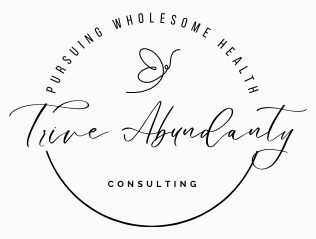This is post 9 of the “Living Fully Alive” Blog Series. Reading the posts in the order they were posted is recommended for the best reading experience.
The idea about habitual feelings is that we get so used to feeling a certain way in a certain situation, that we just get used to it and fall into that habit naturally. One example for this is how people feel at Christmas, because it tends to drag up painful issues and the feeling with Christmas gets associated with the feeling of the events happening during that time.
However, there is a different aspect to this habitual feeling also. Something similar to the homeostasis that the body tries to maintain, our soul tries to recreate or maintain what we have become habituated to as normal. I think there is at least some form of connecting link here to the prover. Let’s say I have always been in financially stressful situations. Even with a promotion, I will suddenly find myself having bigger bills and other things showing up that eat up that new salary. I think I know of at least two people who have habitual physical issues. I don’t want to offend anyone by telling them the reason they keep being sick is because it has become a habit, identity even, and that they subconsciously keep recreating that scenario to maintain normal. However, I am fairly certain we all have known one or two people, where trouble just seems to follow them. Not a fraction of all that seems to happen to them happens to us. Could this qualify as habitual? I don’t know, but it sure made me think of these people.
For me, I greatly dislike holidays. One of the questions we can ask ourselves is “are there certain events that happen around that time that could create habitual feelings? I can tell that I don’t look forward to holidays because they exhaust me. I think what created that feeling is that we live out of town from both sides of the family, so there is no one else taking on any of the work. It is all up to me. Granted, now that the kids are older, I am opening it up. I tell each of them to think of what they want to happen on the particular holiday. Then they need to take the initiative and make that happen. It actually worked pretty well this year. But I get off track, the example was to find out why I feel glum and realize it’s because of repeat things that happen around that time every time.
You might wonder why we have habitual feelings. Apparently, the brain is designed to seek to preserve energy. Therefore, it will take things that are repetitive, and put them into autopilot. Examples of these kinds of things are automatically locking the door, brushing teeth, and any other routine thing. The brain preserves energy by not making you have to consciously think about those things any more. This is somewhat related to a previous concept we talked about concerning the subconscious and how things get moved to the subconscious. Emotions and thoughts appear to be handled on autopilot as well. In order to break the habitual emotion, I have to first become aware of it, which I do by thinking, analyzing, asking God for help and then actively working on it.
I did this in the above example. I caught on that at least one of the reasons I feel unenthusiastic about holidays is because of how tiring it is for me to do it all myself. When I sat my family down last Christmas and told them what I was going to do for Christmas, I began to break that habitual emotion. My part did not involve Christmas lights. They decided they wanted them. They took responsibility for them and put them up and took them down without my involvement.
I haven’t been able to find any other examples of habitual feelings. So I’m handing it over to you. Did you remember any feelings that might be habitual as you read this post? If you have, try to begin to implement some changes.
Click on the hyperlink for more information about Living Fully Alive.






